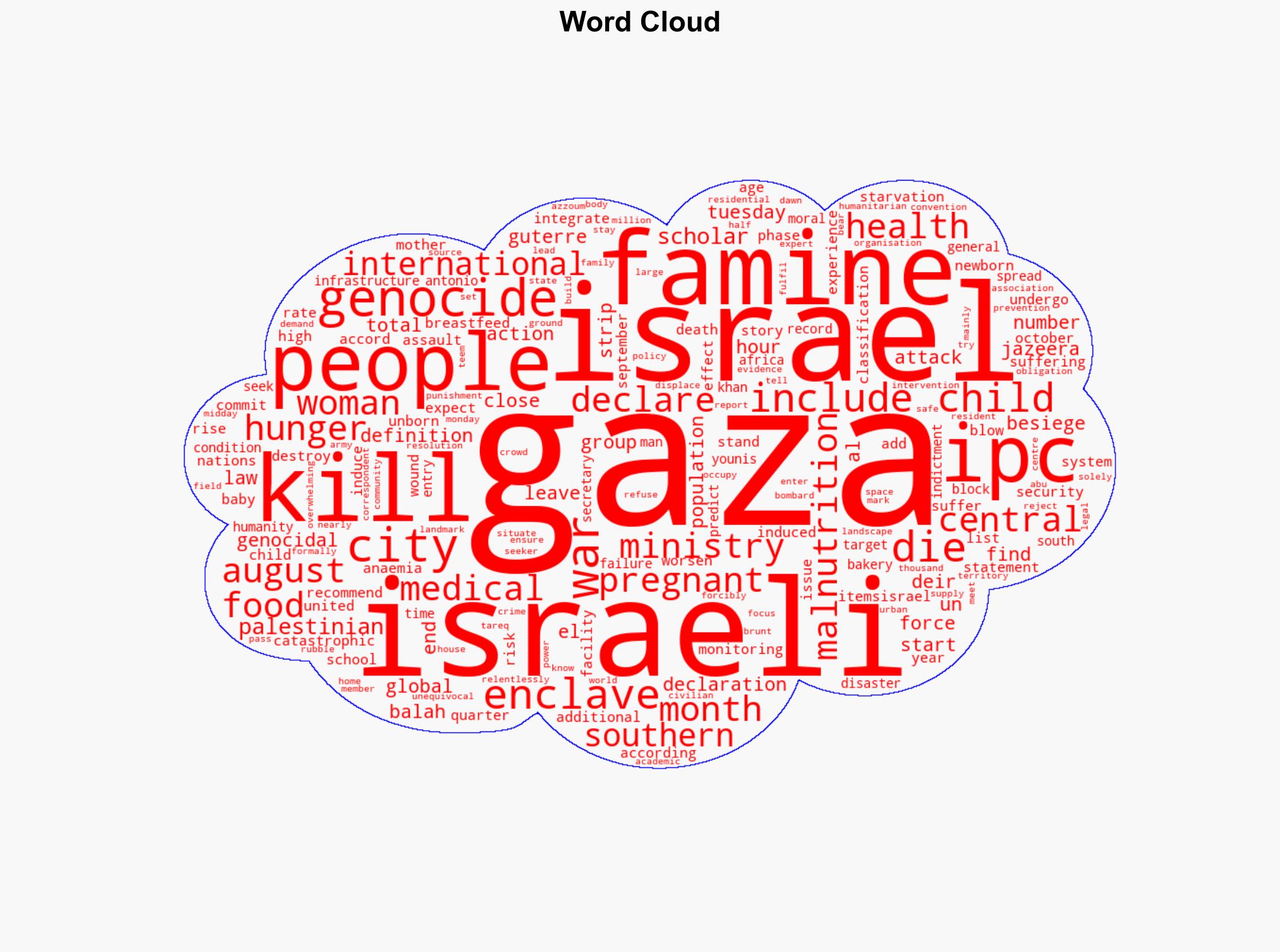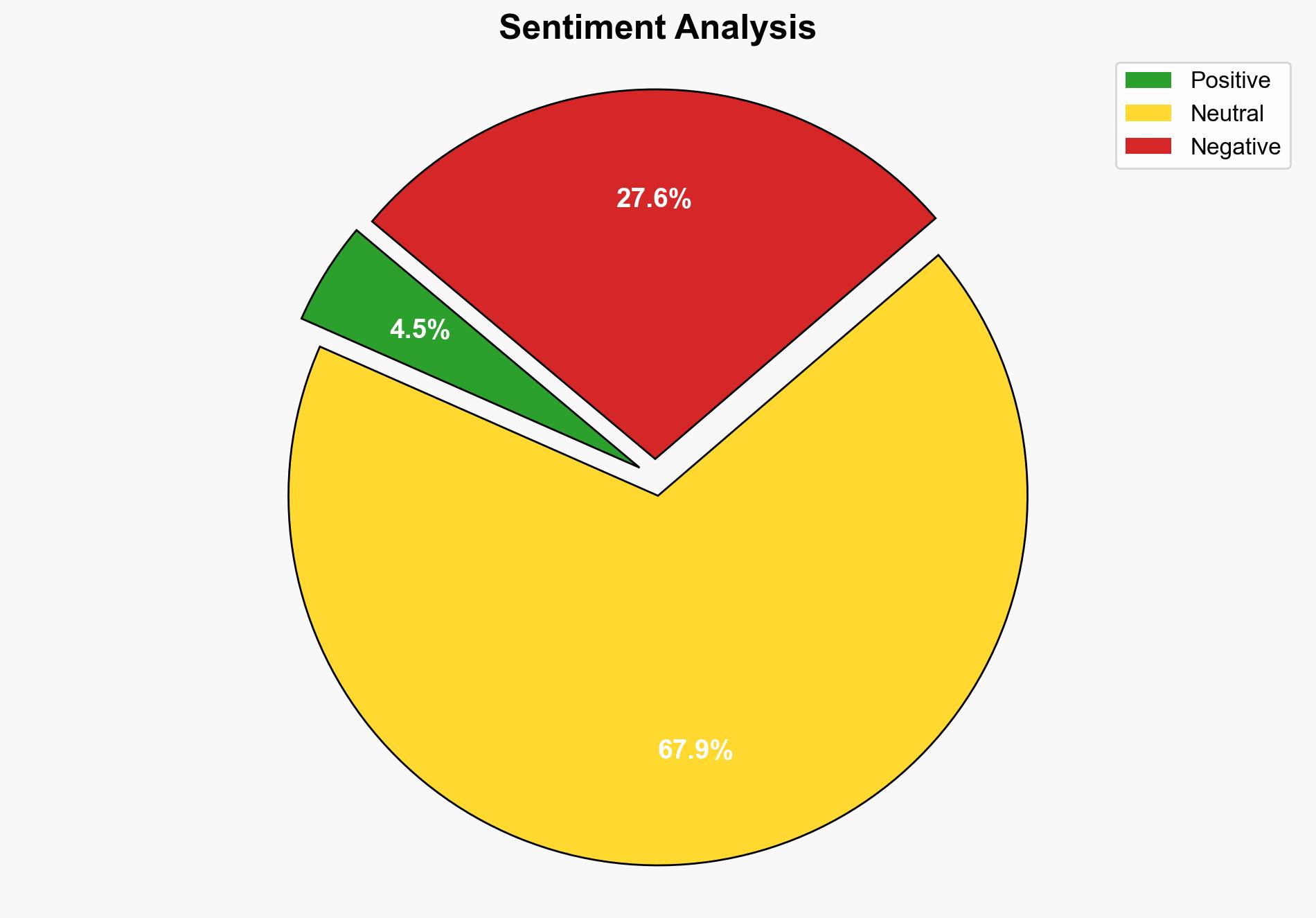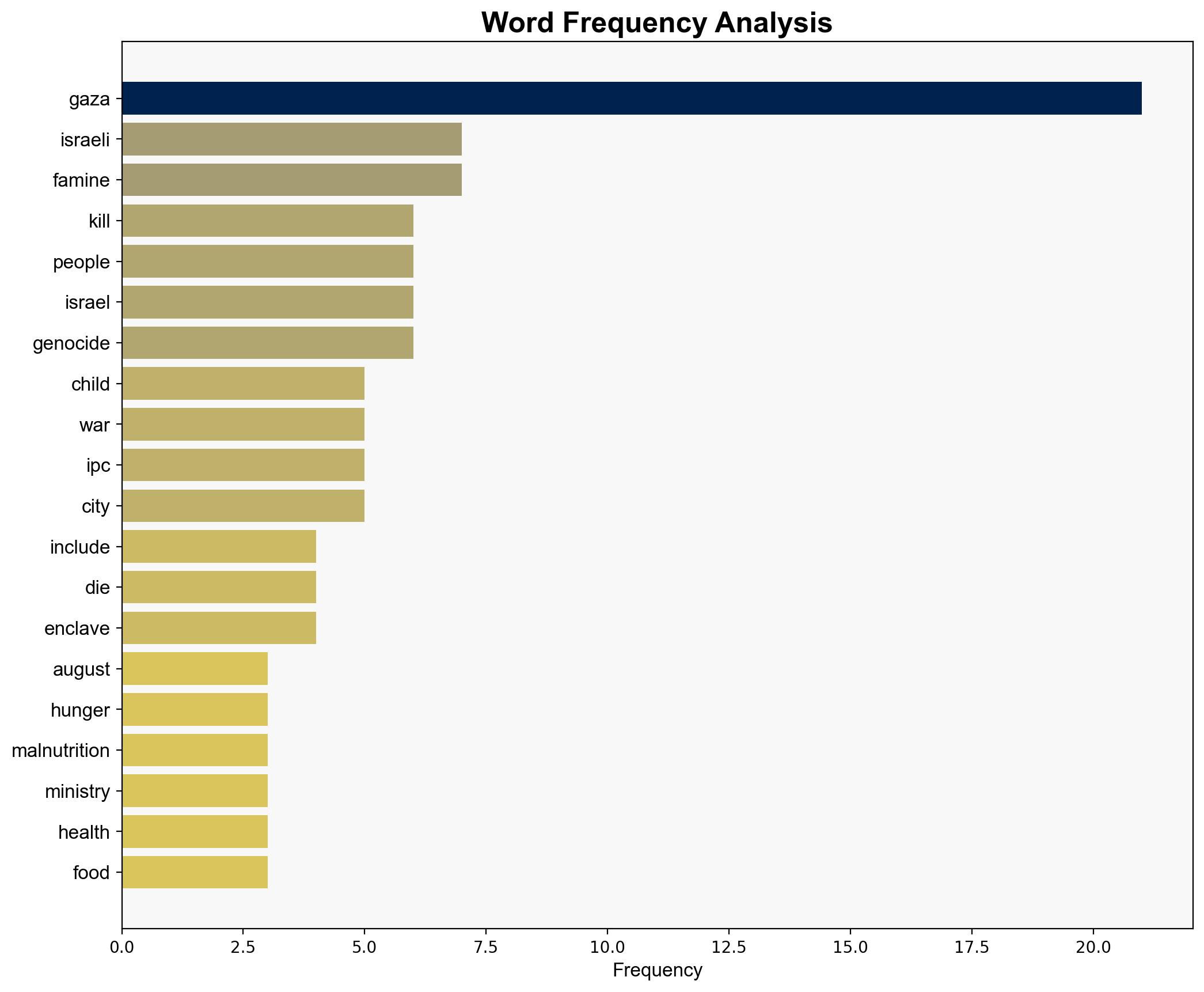Israeli-induced starvation in Gaza kills 185 in August 13 more in 24 hours – Al Jazeera English
Published on: 2025-09-02
Intelligence Report: Israeli-induced starvation in Gaza kills 185 in August 13 more in 24 hours – Al Jazeera English
1. BLUF (Bottom Line Up Front)
The most supported hypothesis is that the humanitarian crisis in Gaza, characterized by severe food shortages and malnutrition, is exacerbated by Israeli military actions and blockades. This aligns with reports from international organizations and the United Nations. Confidence in this assessment is moderate due to conflicting narratives and limited independent verification. Recommended action includes international diplomatic engagement to ensure humanitarian aid access and independent investigations into the crisis.
2. Competing Hypotheses
1. **Hypothesis A**: The humanitarian crisis in Gaza, including starvation and malnutrition, is primarily a result of Israeli military actions and blockades, which have disrupted food supplies and infrastructure.
2. **Hypothesis B**: The crisis is exaggerated or misrepresented, with underlying causes being more complex, involving internal governance issues within Gaza and broader regional dynamics.
Using ACH 2.0, Hypothesis A is better supported by the evidence from international bodies and reports of infrastructure destruction. However, Hypothesis B cannot be entirely dismissed due to the lack of independent verification and potential bias in reporting.
3. Key Assumptions and Red Flags
– **Assumptions**: Hypothesis A assumes that reports from international organizations are accurate and unbiased. Hypothesis B assumes that there are other significant factors contributing to the crisis not fully acknowledged.
– **Red Flags**: Potential bias in media reporting and the politicization of humanitarian data. Lack of independent verification of conditions on the ground.
– **Blind Spots**: Limited access to Gaza for independent observers and potential underreporting of internal governance issues.
4. Implications and Strategic Risks
The ongoing crisis could lead to further destabilization in the region, increasing tensions between Israel and Palestinian territories. There is a risk of international condemnation and potential sanctions against Israel, which could impact geopolitical alliances. Humanitarian conditions could worsen, leading to increased migration pressures and regional instability.
5. Recommendations and Outlook
- Engage in diplomatic efforts to facilitate humanitarian aid access to Gaza.
- Encourage independent investigations to verify the situation on the ground.
- Scenario-based projections:
- Best Case: Humanitarian aid is allowed, reducing the crisis severity.
- Worst Case: Continued blockade and military actions lead to a humanitarian catastrophe.
- Most Likely: Partial aid access with ongoing tensions and sporadic escalations.
6. Key Individuals and Entities
– Antonio Guterres (UN Secretary-General)
– Gaza’s Ministry of Health
– International Association of Genocide Scholars
7. Thematic Tags
national security threats, humanitarian crisis, regional focus, geopolitical tensions




